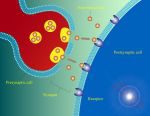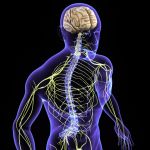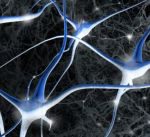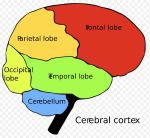Differences in Coping Strategies Most of us are familiar with unhealthy ways of coping with the stressors in our lives, such as certain types of addictions. These may be addictions to alcohol, drugs, gambling, etc. But, what about some healthier and more inspirational ways to cope with the stressors that occur in our lives? Some of the healthier ways of coping have to do with mindset. In other words, what are some better ways of looking at the things that happen to us? What are some of the healthier perspectives…
Read MoreDay: June 30, 2020
A Personal Growth & Development Plan
A Personal Growth & Development Plan: Here at Transform Emotions, we are going to talk a lot about potential, personal growth, and development! So, what does this mean, exactly? The main thing that it means is that we are going to talk about ways to improve any and all areas of our lives, such as physical health, mental health, emotional health, financial health, spiritual health and any other ways that we can enhance our quality of life as individuals and the world in general. Below is a summary of a…
Read MoreWhat Are The Neurotransmitters?
Neurotransmitters come in several classes and categories. If you are wondering, “What are the neurotransmitters?” then this article is for you! What Is A Neurotransmitter? A Neurotransmitter is a chemical messenger. In other words, whenever neurons or cells in your body communicate, they do so through transmission of a chemical (or chemicals) that are sent from one neuron (known as the presynaptic neuron) to another neuron (known as the postsynaptic neuron.) Neurotransmitters typically originate within the organism, tissue or cell, which means that they are endogenous in nature. For more…
Read MoreWhat Are The Parts Of The Nervous System?
Perhaps in the past, you have heard various descriptive terms for the nervous system such as Central, Peripheral, Somatic, Autonomic, Sympathetic and Parasympathetic. You may be thinking, “What does it all mean? What are the parts of the Nervous System and how are they different? How are they the same?” If you are trying to understand these differences, then this article is for you. As you can imagine, there are entire college courses on this subject and it can get very in depth. That is not the purpose of this…
Read MoreBiology Of Belief Review
Biology of Belief Course Review Name: Biology of Belief Course Website: https://transformemotions.com/lipton Price: $399.00 (one-time fee) Owners: Hay House Publishing, taught by Dr. Bruce Lipton Overall Rank: 97/100 “Biology of Belief Course” Overview The Biology of Belief Course is a 5-week video course about the exciting new discoveries in science, how these discoveries have changed the way we define our world, and how we can use them to heal ourselves. This course is taught by a cellular biologist, Dr. Bruce Lipton. If you have ever wondered, “What is Epigenetics About,”…
Read MoreWhat Is A Nerve Cell?
What Is A Nerve Cell? A Nerve Cell is most commonly known as a Neuron. Neurons are located predominantly in the Central Nervous System, which means they are most commonly found in the Brain and the Spinal Cord. So, if you have ever wondered what is a nerve cell or neuron, then this article is for you. What Do Neurons Do? Neurons communicate messages to one another and send messages throughout the body. What happens is that they line up and send messages from one neuron to another. If you…
Read MoreWhat Are The Parts Of The Brain?
What Are The Parts of the Brain? In order to understand how the mind works, it is important to have a basic understanding of the different parts of the brain and its functions. Some people believe that the brain gives rise to consciousness, while still others believe it to be a transmitter that gives and receives information from consciousness. Either way, we all know that our individual, human bodies would not survive without the brain! The Brain Consists of Three Major Components: Cerebrum Cerebellum Brain Stem The Cerebrum: The Cerebrum is…
Read MoreWhat Is Pavlov’s Dog?
Who was Ivan Pavlov? Ivan Petrovitch Pavlov was a Russian physiologist (1849 – 1936) who won the Nobel Prize in 1904 for Physiology and Medicine. He was able to acquire this honor by studying digestion and salivary glands. Although his focus was on digestion, he accidentally stumbled across an important and fundamental process through which animals and humans learn. Pavlov’s Accidental Discovery: One day, Pavlov noticed a peculiar phenomenon. Not only did the dogs salivate when their food (meat powder) was brought into the room, but they also salivated whenever Pavlov or one of…
Read MoreWho Is Sigmund Freud?
Sigmund Freud was an Australian neurologist and most commonly known as the “Father of Psychoanalysis,” or the Psychoanalytic Theory. Born in 1856, his philosophies had a huge impact on the world in the beginning of the 20th century, and he later died in 1939. Sigmund Freud and His Cocaine Addiction: Freud was well known for his cocaine addiction, which he recommended for the treatment of certain disorders such as depression and morphine addiction. Obviously, we now know this to NOT be the best strategy for the treatment of addiction and…
Read MoreWhat Is Abraham Maslow’s Hierarchy Of Needs?
In 1943, a psychologist by the name of Abraham Maslow wrote a paper for the Psychological Review entitled, “A Theory of Human Motivation.” In this paper, Maslow proposed a five-part theory where he describes what motivates human beings based on a hierarchy of their needs. How Did Maslow Come Up With These Needs? The way that Maslow devised these levels of human needs was by studying the characteristic of people who have been successful and accomplished great things in their lives, instead of studying people who were dysfunctional. In other words,…
Read More









